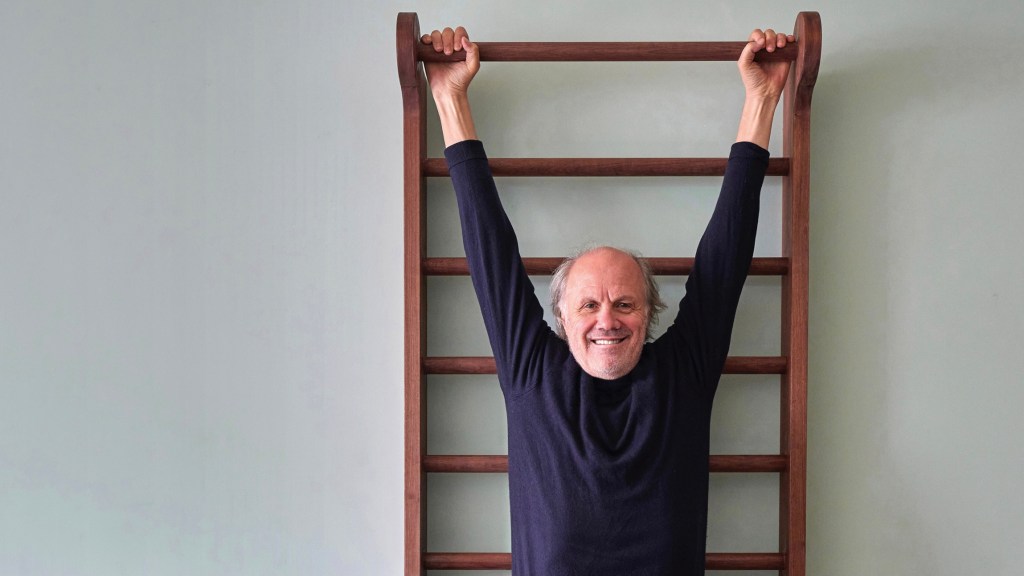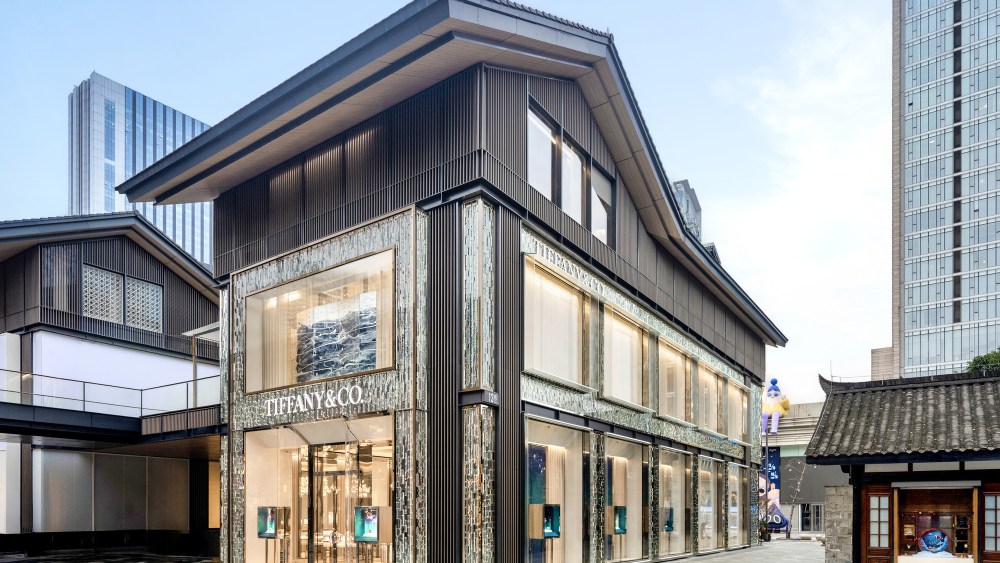Aldo Cibic, a member of the Memphis Design Movement, developed an obsession with small-space dwellings when he moved to Shanghai more than five years ago.
Invited by the esteemed Tongji University to participate in an urban revitalization project, Cibic found himself looking at a storied yet sleepy working-class neighborhood in Hongkou district, far removed from the glitz and glamour of downtown Shanghai.
Always experimenting with communal living ideas, the 64-year-old Cibic planted himself in the community by adopting a 366-square-foot apartment in a neighborhood lane house, persuading his favorite local café Punchline Coffee to set up shop nearby, and established his design research firm Cibicworkshop next door.
His compact studio apartment, called “a UFO in Shanghai” for its unconventional setup, adopted elements of Memphis playfulness but cleverly reprogrammed for compact living.


Cibic’s studio apartment in Shanghai.
Priorities change as modern living calls for multifunctional living spaces. Cibic’s Shanghai apartment offered a chance to rethink home essentials. A generous wooden table, a king-sized bed, and a small doughnut stool are Cibic’s most recent designs, while several bamboo chairs found on Taobao and a Brionvega Radiofonografo record player add a sense of playfulness.
Cibic had a Comme des Garçons phase in his youth but now operates on an efficient three-outfit wardrobe system, so there’s no need for a closet. For a quick power nap, Cibic lounges on a sizable carpet instead of a sofa.
“When you have a small place, a sofa makes it into a stupid small house,” says Cibic matter-of-factly. A wooden gym ladder, a part of Cibic’s Smart Home Fitness system, easily creates an unexpected edge for the already playful space, which is painted in shades of red, green and yellow.

Cibic with his wooden gym ladder.
“Very normal” is how Cibic prefers to characterize his house. “My little house, you see real nice things, with not much money, but really cozy,” Cibic adds.
The small apartment quickly struck a chord in China. One of the largest Chinese rental companies has approached Cibic to recreate his living template for thousands and even millions of small homes in China, which would offer an affordable template for young transplants to first-tier cities who still dream of living smartly.
“It really is democratic beauty or accessible beauty,” says Cibic. “it is already in the process of scaling up, of becoming more accessible, which to me is a top achievement of my design.”
In Cibic’s eyes, a shift in lifestyle has called for a brewing design movement in China that recalls the intensity of the design renaissance that blew up in ’80s Milan. “What happens in China through my eyes is that the 1980s in Italy is happening in China now — you see the clothes, the lavish way of dressing, the flashy cars on the streets; what comes next is the home, what concerns people will be how to take care of themselves, how to make something nice for yourself,” Cibic says.
The fast churn of modern-day China has created a disconnect with nature and with the culture’s storied past. Trying to tackle the problem with empathy, Cibic designed “The T Family” collection using reclaimed wood that he discovered at a nearby Suzhou warehouse.
“By using these materials for my pieces, I’m generating another layer of meaning,” says Cibic. Influenced by traditional Chinese furnishing, the collection echoes his work during his Memphis days with an added “accent of China.” It also harks back to “a forgotten way of elegance in life,” most of which is long lost.

Aldo Cibic’s furniture collection built with reclaimed wood found in Suzhou.
Cibic’s next big China project will be his dream come true: a socio-agricultural concept conceived more than a decade ago. Cibic found a partner in a local real estate entrepreneur who decided to revamp a piece of farmland in rural Shanghai.
On this 98-acre plot of farmland, merely a 30-minute drive from the center of the city, Cibic will devise an agriculture community based on his “Rethinking Happiness” concept, showcased more than a decade ago at the Venice Biennale of Architecture.

A pizza-like mockup from Cibic’s “Rethinking Happiness” concept.
The project will feature several blocks of programmatic clusters, such as a market square, research labs, an art and performance space, tourism-friendly traditional houses, and a community-building center, which will provide activities for residents and visitors.
Around 25 private houses will line the estate, one of which will allow Cibic to play with living situations again.
“This is a new adventure. To do a project here means to show a possibility, show an interesting China, which is also an extension of the Memphis collective dream,” says Cibic of his grand social experiment.

Members of the Memphis design movement.
Working in China became a way for Cibic to “see with the eyes of the other, which is very rich,” but also a chance to work through challenges that are only present locally, such as dealing with “feng shui,” an ephemeral design principle passed down through the dynasties that is meant to capture positive energy and fend off negative ones. “Feng shui is interesting, but you don’t want to be obsessive about it,” says Cibic.
The pursuit of joy and happiness lies at the heart of Cibic’s design practice, which had moved toward a more social dimension.
Before his “ideal project” is completed, Cibic has his small garden at home. During the Shanghai lockdown due to the pandemic, Cibic devised a set of small ceramic toys to bring more joy into the home. His “Small Family” includes a mango tree, a dinosaur and an elephant.

Aldo Cibic’s “Small Family” home objects collection.
“The reason is that I like to use them to create landscapes for the domestic environment. These landscapes are like small friends that bring a sense of joy to a home or to another place where you spend a lot of time of your life,” Cibic says.



